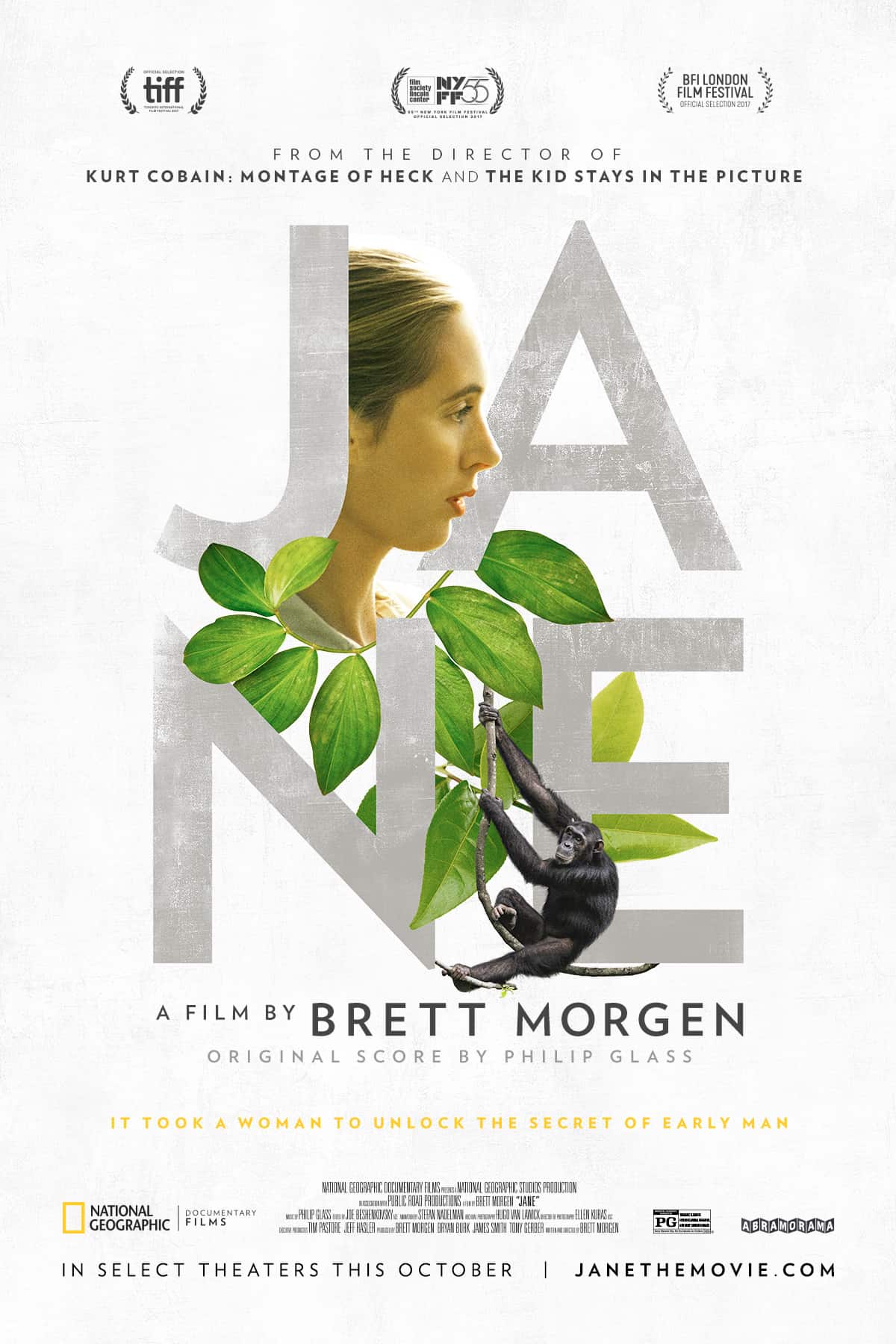In Brett Morgen’s film, JANE, we are shown never-bef0re-seen footage depicting Jane Goodall‘s expeditions to western Tanzania to study chimpanzees. Set to a Philip Glass score, this breathtaking film paints an intimate portrait of a young woman who defied convention to follow her dream and do something that had never been done before. Watch as her life is inextricably intertwined with those of the majestic animals she studied, and learn some profound truths as to why we all must become conservationists. Here are the 4 biggest takeaways from JANE:
- She was inexperienced. Jane Goodall was a twenty-six-year-old secretary with no scientific degree when she was chosen by famed paleoanthropologist Louis Leakey to go on the first expedition to study chimps in the wild. She waited on tables to finance the ground-breaking expedition, and she said later that her time spent living among the animals was a childhood dream come true. Goodall is now widely regarded as the foremost expert on chimpanzees in the world.
- She was not afraid. Despite the dangers involved–poisonous snakes, isolation, aggressive chimps, leopards–Jane was buoyed by a feeling of inner peace. “I had this crazy feeling: nothing is going to hurt me,” she explains. “I’m meant to be here.” Her calm and patience eventually paid off. The chimps grew to accept her presence and live out their lives as if she weren’t even there.
- Chimps are a lot like us. The evolutionary connection is obvious, but Jane was able to witness firsthand how similar we can be. She saw selfless and supportive maternal affection, the use of object modification (tool-making), and grooming sessions that underlined the chimps’ need for community and connection. She also saw the dark and brutal aspects of human nature. “War had always seemed to me to be a purely human behaviour,” she said. “I’d come to accept that the dark and evil side of human nature was deeply embedded in our genes, inherited by our ancient primate ancestors.”
- We must remember what separates us. The one major thing that sets us apart from our primate ancestors is that we have developed a sophisticated spoken language. This allows us to share information about our discoveries and past mistakes to the next generation. “This highly developed intellect means surely,” said Jane, “that we have a responsibility towards the other life forms of our planet, whose continued existence is threatened by the thoughtless behaviour of our own human species.”
JANE premieres March 12 at 10 p.m. ET/PT on National Geographic.



 Follow Us On Instagram
Follow Us On Instagram
